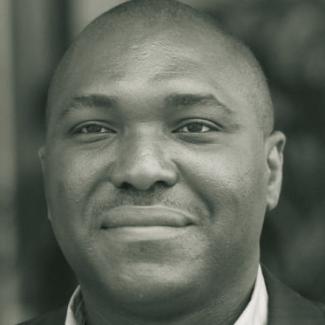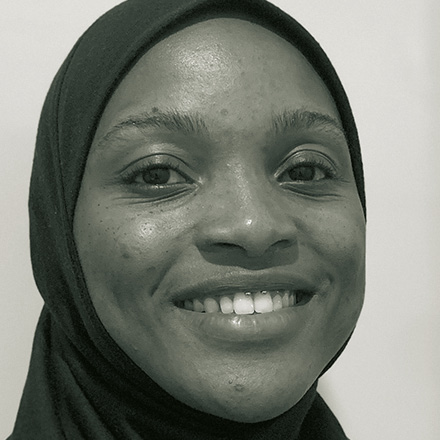Brain drain in Africa
Brain drain in Africa’s health-care sector
 picture-alliance/AA/Ihsaan Haffejee
picture-alliance/AA/Ihsaan Haffejee
Watch helplessly as people die in African hospitals, or save patients’ lives abroad? That is the decision that doctors face in sub-Saharan countries. Health-care professionals from English-speaking countries are moving to London, Sydney or New York. Those who come from Francophone countries go to Paris or Montreal. The result is the same: in their home countries, the shortage of medical personnel worsens.
Decrying the decline of health care and their poor working conditions, doctors from public hospitals in Africa repeatedly go on strike – for instance in Nigeria. On the other hand, there is unemployment among medical school graduates. Last December, 40 of the 3000 unemployed doctors in the Côte d’Ivoire were arrested while demanding employment in the public sector. A court issued them a suspended sentence of four months.
Poor working conditions and low pay reflect a lack of appreciation – all of which is depressing. Doctors can easily earn 25 times more money in North America than they do in West Africa. Accordingly, many leave their home countries – to the benefit of high-income countries.
According to official statistics, in France, about 10 % of all physicians come from abroad. For Ireland and Canada, their share is approximately 35 %. Of the 750,000 health-care professionals working in British hospitals in 2022, over 66,000 came from foreign countries as well. Ten years ago, an Ethiopian official stated that there were more Ethiopian doctors in Chicago than in Ethiopia.
Large personnel gaps are common in rich countries’ health systems. They fill positions through immigration. More and more international agencies in Africa are recruiting health-care workers for jobs in far-away places.
The migration of African health-care workers to Europe or North America is nothing new. The first waves of this kind of brain drain occurred in the 1960s and 1970s. At the time, many of those who had received international scholarships for their medical studies did not return to their (often authoritarian) countries after graduating.
Since then, medical education at African universities has been expanded. Now there are waves of migration of medical professionals with African degrees. Doctors who want to specialise in a certain area are particularly prone to move. In Europe or North America, they see opportunities to further develop their skills and receive international recognition.
Indeed, some brilliant African physicians who live abroad have been honoured for their contributions to science and innovations in clinical practice. There is reason to doubt that they could have achieved anything similar on their home continent.
The latest exodus of African medical professionals began in the 2000s. Nurses have now begun to migrate too. Like the doctors, they are motivated by attractive salaries and opportunities for development.
Returning to save lives
Integrating African-trained health staff into the systems of wealthy nations is a multi-step process. It often includes professional demotion. Despite having graduated from med school, some doctors end up as care workers. Some decide to get yet another degree in order to find a suitable job. Another grievance is that they often earn less than their native-born colleagues.
Nonetheless, many professionals emigrate from Africa. They hope that their professional status will improve over the years. Some also want to gather enough financial capital and knowledge to eventually start private clinics in their home countries.
For a long time, people who chose to seek employment abroad were looked down on in Africa. They were seen as unpatriotic and accused of prioritising their own well-being instead of using their knowledge and skills in support of their countries’ development. Today, nurses working abroad are not spared this judgment either. Indeed, migration does cause enormous gaps in African health-care systems.
On the other hand, recent developments show that the labour migration of African professionals can contribute significantly to the modernisation of health care at home. The expats regularly transfer money to invest in the establishment of private hospitals and clinics in Africa. Moreover, some return from abroad in order to work in such facilities themselves.
As a result, first-rate institutions are emerging. They are reducing the “medical tourism” of wealthy elites to rich countries. The African diaspora also sometimes supports new health-care stations in rural areas. Training facilities which serve to pass on the knowledge they’ve gained abroad are important too.
Charitable missions are also conducted from the diaspora. In many cases, patients benefit who otherwise would not have access to medical services at all.
There are also initiatives to set up health-insurance schemes at the local level with funding from the diaspora. Thus, the success of African medical professionals in high-income countries is leading to new models of international cooperation and better knowledge transfer. Hopefully, the health of the people on the continent will also improve over the long term as a result. For the time being, however, it is mostly urban upper classes who benefit from good private hospitals.
Samir Abi is an economist and director of the non-governmental organisation Visions Solidaires in Togo.
samirvstg@gmail.com




